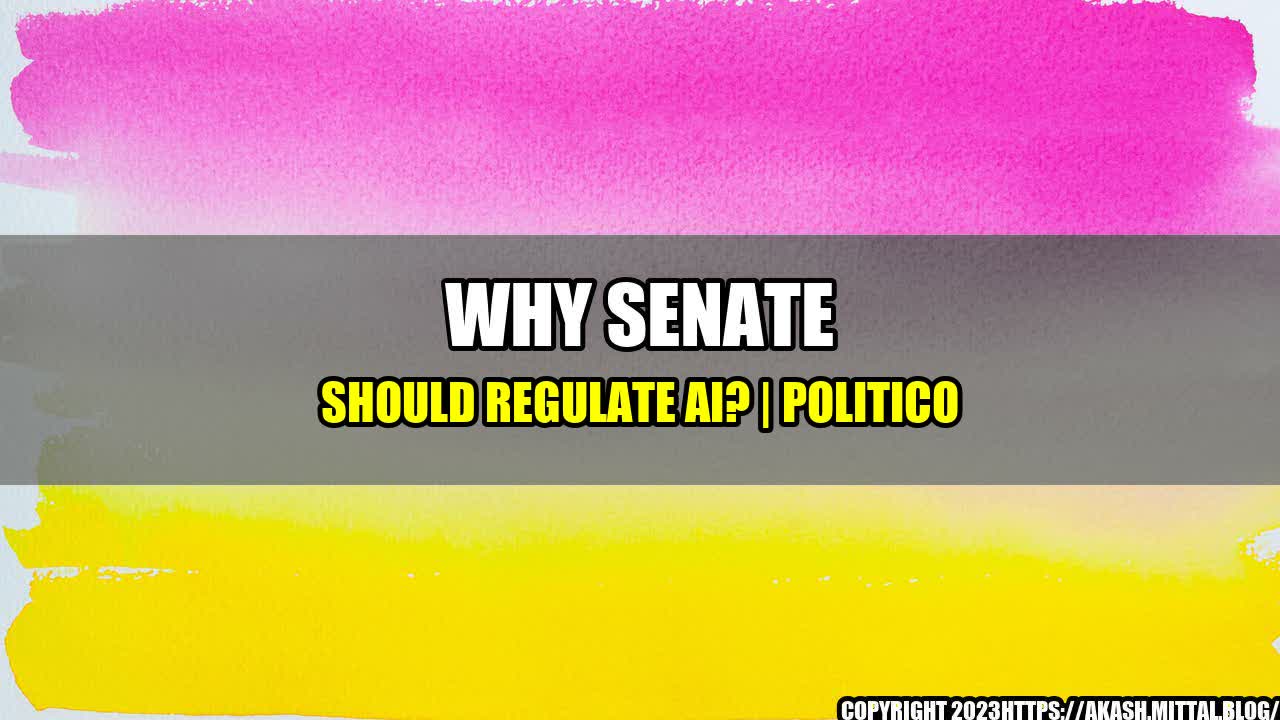For many people, the idea of artificial intelligence (AI) conjures up images of robots taking over the world. While this may seem like something out of a science fiction movie, the truth is that AI is already a part of our daily lives, from the personal assistant on our smartphones to the algorithms that recommend what we buy and watch online.
In recent years, there has been widespread debate about the potential benefits and risks of AI. Some experts believe that AI has the power to revolutionize everything from healthcare to transportation, while others warn that it could lead to mass unemployment and even pose a risk to our safety.
Despite these concerns, there is currently very little regulation of AI, both in the United States and around the world. This has led to a situation where the development and deployment of AI is largely left up to private companies, with few safeguards or standards in place to ensure that these systems are safe, ethical, and transparent.
The Case for Regulation
So why should the Senate take an active role in regulating AI? Here are three key reasons:
Protecting Consumers
AI-powered systems can be incredibly powerful, but they can also be prone to errors and biases. Without proper regulation, there is a risk that consumers could be harmed by these systems, whether through discrimination in hiring and lending decisions or through the failure of AI systems to accurately diagnose medical conditions.
By enacting regulations that require companies to test and certify their AI systems before deployment, the Senate can help to ensure that these systems are safe, transparent, and effective.
For example, the General Data Protection Regulation (GDPR) in the European Union includes provisions that require companies to obtain explicit consent from users before processing their personal data. This has helped to protect consumers from the misuse of their personal information by companies that develop and deploy AI systems.
Promoting Innovation
While regulation can sometimes be seen as a barrier to innovation, the truth is that it can also serve as a catalyst for investment and growth. By providing clear guidelines and standards for the development and deployment of AI, the Senate can help to create a level playing field for companies of all sizes, encouraging the growth of new startups and fostering technological innovation.
For example, the National Institute of Standards and Technology (NIST) has been working on the development of a framework for AI standards that can be used by companies to assess the reliability and security of their systems. By providing a common set of standards, NIST is helping to promote the growth of a safer and more reliable AI ecosystem.
Fostering Global Cooperation
Finally, regulation of AI can also help to promote greater international cooperation and collaboration. In a world where AI systems are becoming increasingly interconnected and globally deployed, it is essential that we have common standards and principles to guide their development and use.
The Senate can play a critical role in promoting these standards by working with other governments and organizations to develop a common framework for the regulation of AI. By doing so, we can help to ensure that the benefits of AI are shared by everyone and that we avoid the risks and pitfalls that can arise from unregulated or poorly regulated systems.
The Road Ahead
Despite these compelling reasons for the regulation of AI, it is clear that there are still many challenges to be overcome. For example, AI is a complex and rapidly evolving field, and it can be difficult for regulators to keep up with the latest developments.
There is also the question of how to balance the need for innovation with the need for safety and ethical standards. While some companies may argue that excessive regulation stifles innovation, others contend that it is essential for protecting consumers and promoting the long-term growth of the industry.
Ultimately, the key to success in regulating AI will be to establish a balance between these various interests while keeping in mind the potential risks and benefits of this transformative technology. With clear guidelines and standards in place, we can help to ensure that AI is used in a way that benefits everyone while minimizing the risk of harm to individuals and society as a whole.

Curated by Team Akash.Mittal.Blog
Share on Twitter Share on LinkedIn